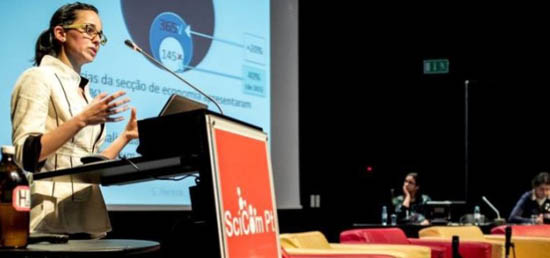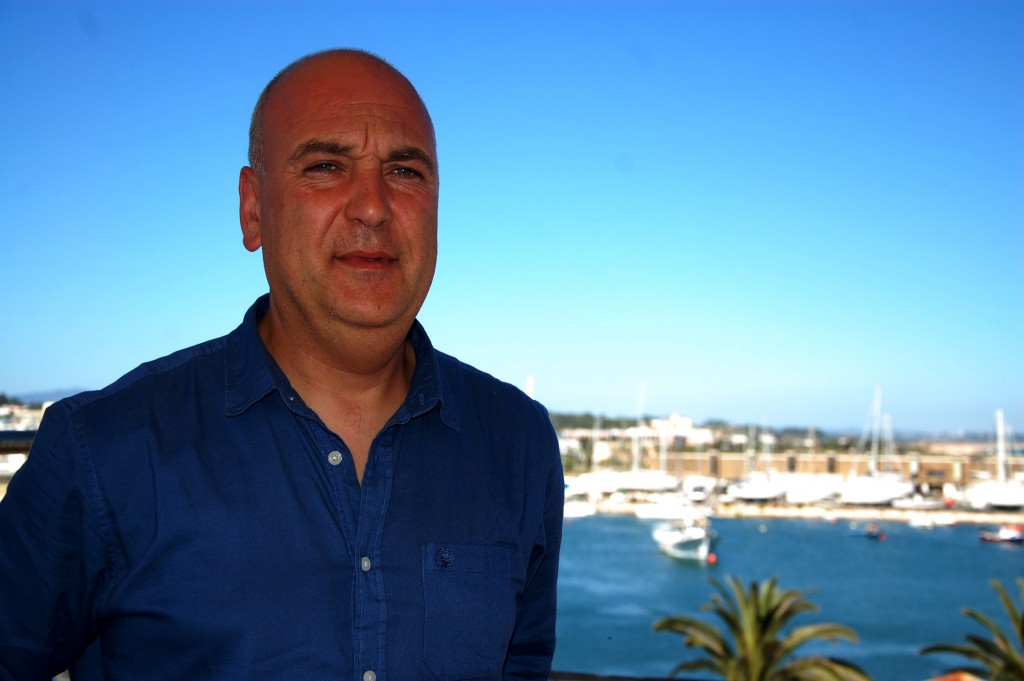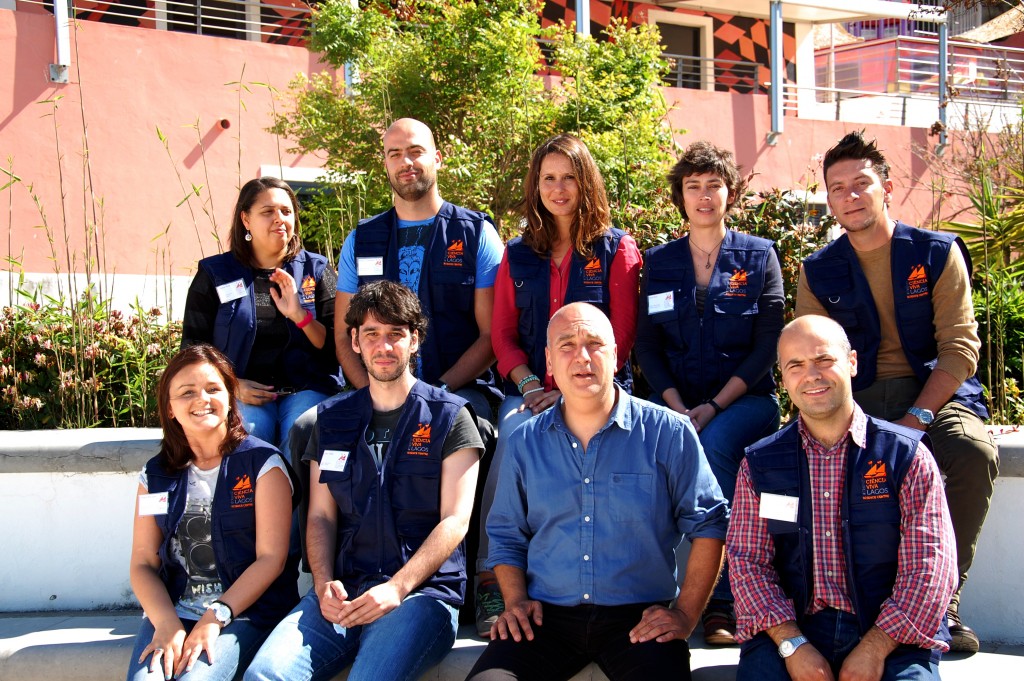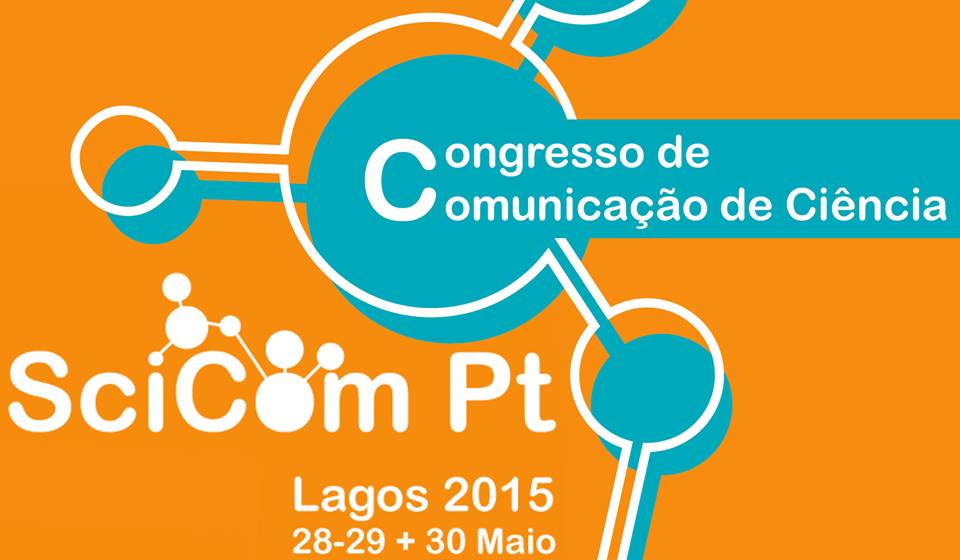 O Science Communication Congress Sci With PT 2015 starts this Thursday, the 28th, and runs until Saturday, May 30th, at the Centro Cultural de Lagos and the Ciência Viva Center in the city, in an organization of the three Ciência Viva Centers in the Algarve – Lagos, Faro and Tavira.
O Science Communication Congress Sci With PT 2015 starts this Thursday, the 28th, and runs until Saturday, May 30th, at the Centro Cultural de Lagos and the Ciência Viva Center in the city, in an organization of the three Ciência Viva Centers in the Algarve – Lagos, Faro and Tavira.
In addition to two days of presentations of papers, by guest speakers and other science communicators who want to show their work, this third edition of Sci Com PT also includes a third day of workshops with experts.
Luís Azevedo Rodrigues, director of the Centro Ciência Viva (CCV) in Lagos and main responsible for organizing the congress, recalls, in an interview with Sul Informação and Algarve University Radio (RUA FM), that this is already the third meeting dedicated to science communication in Portugal, after the 2013 Sci Com at the Pavilhão do Conhecimento, in Lisbon, and 2014 at the University of Porto.
Last year, CCV Lagos, in partnership with the two others from the Algarve, «had the opportunity to take on this challenge, to organize a meeting that already has some dimension and tradition. It was a possibility that we grasped tooth and nail and we are working to make the congress a success», explained the official.
Luís Azevedo Rodrigues pointed out that there was no difficulty in putting the three CCVs in the Algarve to work in the organization: «the three centers are part of a national, coordinated network, so we are used to working in a network». However, he admitted, "obviously, being the Congress in Lagos, a lot of the work is on our backs."
But what need is there to promote a congress of this type?

«In the first edition – at the Knowledge Pavilion – one of its main results was to verify that there is a very diverse group of people working in science communication – researchers, artists, science journalists, educators, museums and science centers».
In 2014, «this trend of diversification of projects and people was a reality and in 2015 we have a record number of works – more than 170 – which reveals the dynamism of science communication in Portugal».
The director of the CCV in Lagos emphasizes that «Science communication involves many people and many different works, but all aim to make scientific information, the knowledge generated by scientists, accessible». Basically, he explains, "science communicators become mediators of this science for the general public."
And this is especially important for several reasons, but also “because in Portugal and in Europe in general, it is the public that finances a large part of the research that is carried out”. Therefore, “one of the main reasons why citizens deserve to be informed by science communicators is a matter of justice – since it is the citizen who pays for the investigation, it is good that he understands it in an accessible language”.
Luís Azevedo Rodrigues, himself very used to these tasks, either through his blog or the regular radio program «Ciência à Conversa» on RUA FM (and later also published here in Sul Informação), «being a science communicator is also not just translating a paper, it is involving people, making them aware of the importance of Science, often also linking to projects that can be helped by citizens, for example in data collection , as there are some examples in the so-called citizen science».
As examples of this citizen science, he emphasizes that «there are research groups that need data – observation of birds in a certain place, number of stars seen in a certain quadrant, massive data collection or sharing of citizens' computers . In these cases, the science communicator makes the connection between the researcher and the common citizen».

Does science communicate well in Portugal? «Yes, we are working well on science communication». This year, at the Congress, «very diverse works will be presented, in areas that we were surprised, because we didn't think there were people working in them».
Formal training for science communicators is also being carried out – Universidade Nova de Lisboa is an example of this, as it has a master's degree in science communication. And the Ciência Viva Centers have also contributed to this training, since «there was no tradition of research groups and universities having a science communication component in their projects», but «with regard to the Algarve, the CCV have been working in contact with communicators, offering their services as science communicators».
One of the usual practices is “to invite researchers to come to the CCVs to talk about what they are doing”. The Centro Ciência Viva de Lagos, for example, «now has a health literacy project that involves a lot of talking, discussing, presenting issues, but bringing in specialists, people who develop or investigate the issues».
Luís Azevedo Rodrigues emphasizes that, in order to advance science communication in Portugal, the creation of the National Agency for the Promotion of Scientific and Technological Culture and the network of Ciência Viva Centers, launched by Professor Mariano Gago was fundamental.
This allowed the general public, who are not researchers, "to see science with new eyes, wherever it may be". And he gives the example of the actions of Ciência Viva in Summer, through which «people learned that they can be at the beach, on vacation, but their children can enjoy watching birds or the stars».
But what is this for communicating science? «In the case of scientific culture, it allows us to understand, enjoy and, ultimately, decide on some issues», for example, «look at a certain landscape and understand why it is there».
O Science Communication Congress Sci With PT 2015 includes, for the first time, six workshops: “we chose several areas that we thought would be lacking among science communicators and other stakeholders”.
And so, on Saturday, in workshops open to anyone who wants to enroll, there will be a workshop on «visual literacy and how to communicate visually in a more interesting way» (“Visual Scientific Communication / Visualcia”), by Fernando Correia, from the University of Aveiro.
Another of the themes, "innovative", according to the person responsible for the organization, will be "Horizon 2020: Preparation of proposals and evaluation process", that is, showing scientists and science communicators how they can make a proposal to Horizon 2020. The trainer will be Ricardo Migueis, from the Science and Technology Foundation
Journalist Vasco Trigo will explain «how to face the big monster that is the television camera», at the workshop “Science Communication with the Media: Do's and Don'ts”, while another journalist, Paulo Querido, will speak about social media and “Communicate in Network Society”.
 Joana Lobo Antunes and Ana Sanchez will speak about the «Oral Communication of Science», while Karen Bultitude, who is also one of the guest speakers, will give a workshop on “Evaluation: a practical guide”, showing “how to assess the impact of actions taken by science communicators”
Joana Lobo Antunes and Ana Sanchez will speak about the «Oral Communication of Science», while Karen Bultitude, who is also one of the guest speakers, will give a workshop on “Evaluation: a practical guide”, showing “how to assess the impact of actions taken by science communicators”
As for guest speakers, there are four, three foreigners and one Portuguese. According to Luís Azevedo Rodrigues, the choice of these speakers was made in such a way that “they sought to cover areas that are important to continue to debate in science communication”.
So, Ian Brunswick, from the Science Gallery in Dublin (Ireland), will talk about the intersections of Science and Art. It is an «institution that has developed a very intense work in the dissemination of science, but in the intersection with artists».
Hans Peter Peters, from the Free University of Berlin, will speak about “the way scientists deal with journalists and vice versa”, that is, about “that often difficult love/hate relationship, especially on the side of scientists, and how is that they can communicate better with journalists».
Karen Bultitude, from University College London, will address the issue of how to assess. In other words, stresses Luís Azevedo Rodrigues, “it is essential that we do things, but also that we know how to evaluate them”.
As for the Portuguese guest speaker, he is Carlos Fiolhais, from the University of Coimbra, who will close the congress: «he, who is the national coordinator of the commission for the commemoration of the International Year of Light, will speak to us precisely about the importance of light, whether in science or in literature».
Not only science communicators participate in this congress, but all those who are “interested in the themes, to hear about projects, but also to speak in the hallways with a person who has done a certain project, with a journalist, an artist”.
In fact, underlines the person responsible for the organization, one of the things that most surprised him at the 1st congress was "the diversity of profiles of people working in science communication", but also the need to have "these moments when people are face to face , speak, argue. For many facebooks, skypes, these face-to-face communication moments are very important».
And face-to-face communication, in the corridors of the Centro Cultural de Lagos, in the Centro Ciência Viva or on the streets of the city, will be what will not be lacking in these three days.
Click here to learn about the program full Sci Com PT 2015.


















Comments